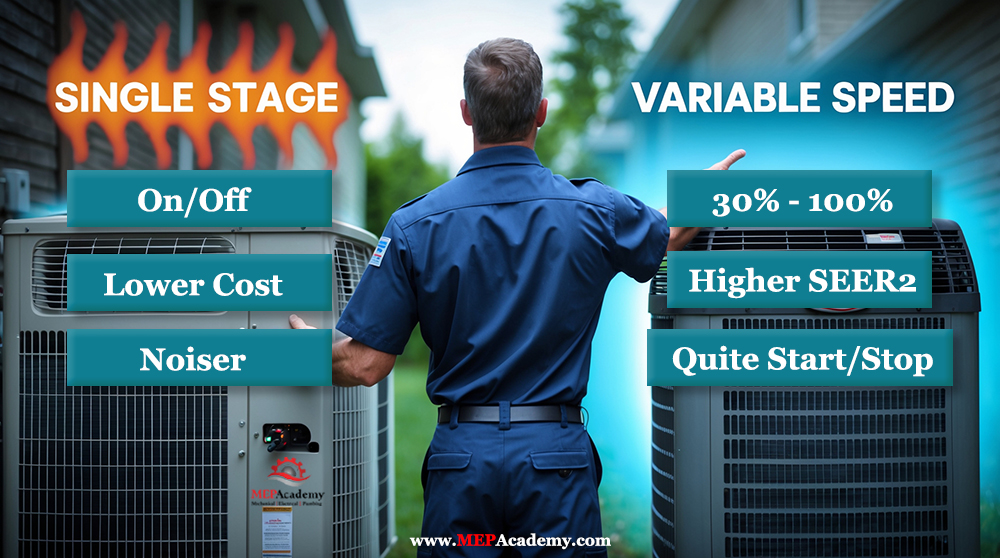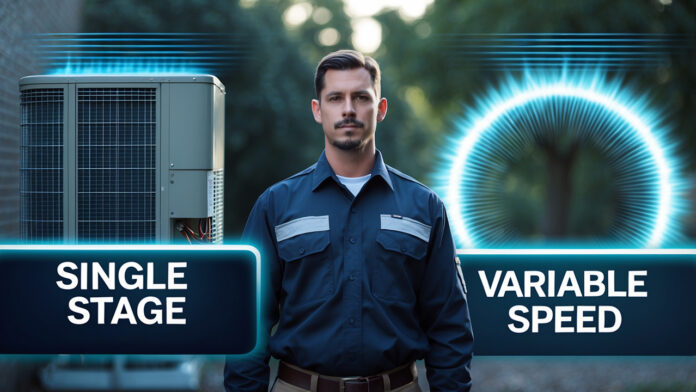If you’re trying to decide between a heat pump variable-speed vs single-stage, this article will break it down clearly — performance, comfort, energy savings, and what’s best for your climate. Whether you’re an HVAC tech, contractor, or homeowner — this one’s for you.
What are Single Stage and Variable Speed Heat Pumps?
Let’s start with the basics.
Single Stage Heat Pumps
These units are either ON or OFF. When they run, they run at full capacity — 100% — every time. Simple, less expensive, but not always the most efficient.
Variable Speed Heat Pumps
These units operate anywhere from 30% to 100% capacity, depending on the heating or cooling demand. They use advanced compressors — usually inverter-driven — that ramp up or down in speed to match load requirements more precisely.
Comfort Comparison
Comfort is where variable speed shines.
Single Stage: Tends to overcool, shut off, then repeat the cycle — which can cause noticeable temperature swings and humidity issues.
Variable Speed: Maintains more consistent indoor temperatures and better dehumidification by running longer at lower speeds.

Energy Efficiency and Cost Savings
Now let’s talk about your energy bill.
Single Stage: Lower upfront cost, but higher operating cost over time. Running at 100% uses more power even when it’s not needed.
Variable Speed: Higher SEER2 ratings. It adjusts to the load, running longer but using less power overall. Think of it like cruise control for your HVAC system.
Noise Levels and Wear-and-Tear
Another factor is noise and long-term durability.
Single Stage: Louder when starting and stopping. More mechanical stress from frequent cycling.
Variable Speed: Quiet and smooth. The compressor doesn’t slam on — it ramps up gently, reducing wear and tear.
When to choose Which
So, which one’s right for your project or home?
Go with Single Stage if:
- You’re in a mild climate with short cooling seasons.
- If Budget is the top concern.
- If you’re replacing a unit in a rental or low-use property
Go with Variable Speed if:
- You live in hot/humid regions or have long summers.
- If comfort, humidity control, and energy savings matter.
- If you want the latest in HVAC tech and system longevity
Maintenance and Installation Tips
Regardless of which heat pump you choose, installation and proper setup are key.
- Make sure ductwork is properly sized and sealed.
- Match the unit with a compatible thermostat.
- Educate the homeowner on how variable-speed systems work — especially the fact they run longer by design
Still not sure which one’s right for your situation? Drop a comment below — we make an effort to respond to every HVAC-related question.







